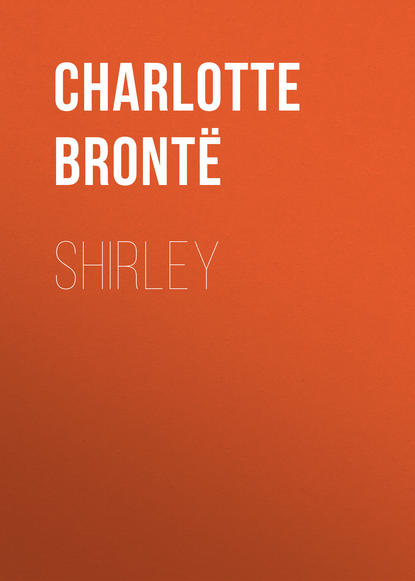По всем вопросам обращайтесь на: info@litportal.ru
(©) 2003-2024.
✖
Shirley
Настройки чтения
Размер шрифта
Высота строк
Поля
"But if she did not tell you that I wanted to marry her for the sake of her money, and that she refused me indignantly and scornfully (you need neither start nor blush; nor yet need you prick your trembling fingers with your needle. That is the plain truth, whether you like it or not) – if such was not the subject of her august confidences, on what point did they turn? You say you talked the whole night through; what about?"
"About things we never thoroughly discussed before, intimate friends as we have been; but you hardly expect I should tell you?"
"Yes, yes, Cary; you will tell me. You said we were friends, and friends should always confide in each other."
"But you are sure you won't repeat it?"
"Quite sure."
"Not to Louis?"
"Not even to Louis. What does Louis care for young ladies' secrets?"
"Robert, Shirley is a curious, magnanimous being."
"I dare say. I can imagine there are both odd points and grand points about her."
"I have found her chary in showing her feelings; but when they rush out, river-like, and pass full and powerful before you – almost without leave from her – you gaze, wonder; you admire, and – I think – love her."
"You saw this spectacle?"
"Yes; at dead of night, when all the house was silent, and starlight and the cold reflection from the snow glimmered in our chamber, then I saw Shirley's heart."
"Her heart's core? Do you think she showed you that?"
"Her heart's core."
"And how was it?"
"Like a shrine, for it was holy; like snow, for it was pure; like flame, for it was warm; like death, for it was strong."
"Can she love? tell me that."
"What think you?"
"She has loved none that have loved her yet."
"Who are those that have loved her?"
He named a list of gentlemen, closing with Sir Philip Nunnely.
"She has loved none of these."
"Yet some of them were worthy of a woman's affection."
"Of some women's, but not of Shirley's."
"Is she better than others of her sex?"
"She is peculiar, and more dangerous to take as a wife – rashly."
"I can imagine that."
"She spoke of you – "
"Oh, she did! I thought you denied it."
"She did not speak in the way you fancy; but I asked her, and I would make her tell me what she thought of you, or rather how she felt towards you. I wanted to know; I had long wanted to know."
"So had I; but let us hear. She thinks meanly, she feels contemptuously, doubtless?"
"She thinks of you almost as highly as a woman can think of a man. You know she can be eloquent. I yet feel in fancy the glow of the language in which her opinion was conveyed."
"But how does she feel?"
"Till you shocked her (she said you had shocked her, but she would not tell me how) she felt as a sister feels towards a brother of whom she is at once fond and proud."
"I'll shock her no more, Cary, for the shock rebounded on myself till I staggered again. But that comparison about sister and brother is all nonsense. She is too rich and proud to entertain fraternal sentiments for me."
"You don't know her, Robert; and, somehow, I fancy now (I had other ideas formerly) that you cannot know her. You and she are not so constructed as to be able thoroughly to understand each other."
"It may be so. I esteem her, I admire her; and yet my impressions concerning her are harsh – perhaps uncharitable. I believe, for instance, that she is incapable of love – "
"Shirley incapable of love!"
"That she will never marry. I imagine her jealous of compromising her pride, of relinquishing her power, of sharing her property."
"Shirley has hurt your amour propre."
"She did hurt it; though I had not an emotion of tenderness, nor a spark of passion for her."
"Then, Robert, it was very wicked in you to want to marry her."
"And very mean, my little pastor, my pretty priestess. I never wanted to kiss Miss Keeldar in my life, though she has fine lips, scarlet and round as ripe cherries; or, if I did wish it, it was the mere desire of the eye."
"I doubt, now, whether you are speaking the truth. The grapes or the cherries are sour – 'hung too high.'"
"She has a pretty figure, a pretty face, beautiful hair. I acknowledge all her charms and feel none of them, or only feel them in a way she would disdain. I suppose I was truly tempted by the mere gilding of the bait. Caroline, what a noble fellow your Robert is – great, good, disinterested, and then so pure!"
"But not perfect. He made a great blunder once, and we will hear no more about it."
"And shall we think no more about it, Cary? Shall we not despise him in our heart – gentle but just, compassionate but upright?"
"Never! We will remember that with what measure we mete it shall be measured unto us, and so we will give no scorn, only affection."
"Which won't satisfy, I warn you of that. Something besides affection – something far stronger, sweeter, warmer – will be demanded one day. Is it there to give?"
Caroline was moved, much moved.

















